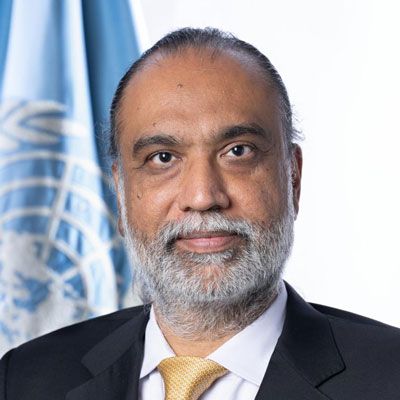
Amandeep Singh Gill
Under-Secretary-General and Special Envoy for Digital and Emerging Technologies, United Nations
The adoption of the Global Digital Compact (GDC), endorsed during the United Nations (UN) Summit of the Future, marks a landmark achievement in global digital cooperation and artificial intelligence (AI) governance.
Described by UN Secretary-General António Guterres as the first truly universal agreement on AI governance, the GDC responds to the urgent need for a coordinated international approach to digital technologies. This initiative aims to foster an inclusive, open, sustainable, fair, safe and secure digital future for all.
Bridging the digital divide globally
The need for such a framework has never been greater. Digital technologies are reshaping economies and societies at an unprecedented pace, offering immense opportunities for human progress while also presenting significant challenges.
One of the most pressing concerns is the digital divide, both within and between nations, particularly in developing countries where access to digital infrastructure remains limited. Without global coordination, disparities in access and governance could widen, undermining efforts toward sustainable development and digital equity.
To ensure no one is left behind in the digital age, the GDC prioritises universal connectivity, digital inclusion and responsible technology use, aligning its goals with the Sustainable Development Goals (SDGs). By fostering multistakeholder collaboration, the GDC aims to make digital transformation equitable and accessible for all, regardless of geographic or socioeconomic differences.
Without global coordination,
disparities in access and
governance could widen.
The role of the UN Office for Digital and Emerging Technologies
As part of the GDC’s implementation, the United Nations established the Office for Digital and Emerging Technologies (ODET) to address the challenges and opportunities posed by today’s rapidly evolving digital landscape. This office, evolving from the Office of the Secretary-General’s Envoy on Technology, was officially created following a UN General Assembly decision on 24 December 2024.
ODET will play a central role in the follow-up and implementation of the GDC, particularly in AI governance. It will serve as a focal point for digital cooperation, engaging with Member States and stakeholders. It will foster multistakeholder dialogue and advise UN leadership on key technological trends. Additionally, the office will work to strengthen system-wide coordination within the UN, ensuring an effective and unified approach to digital governance.
Safe and ethical digital landscape
The establishment of ODET marks a significant step forward in the UN’s strategy to navigate the complex digital landscape. By centralising expertise and facilitating global collaboration, the office aims to ensure that digital transformation is safe, ethical and beneficial for all.
ODET is inviting all stakeholders to endorse the GDC and contribute to shaping an inclusive digital future by signing here: https://input.un.org/se/3995D1A45D6E9B20

